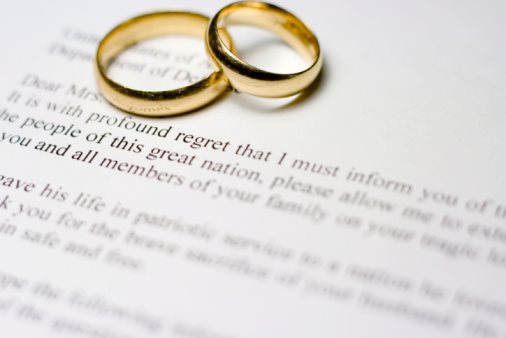Of course, the bill doesn’t give either side everything and is a great disappointment to those who wanted a law to go further than Obergefell but supporters insist it still contains crucial provisions that should provide a modicum of comfort for (almost) everyone. True, it states that “no person acting under color of State law” can deny “full faith and credit to any public act, record, or judicial proceeding of any other State pertaining to a marriage between 2 individuals, on the basis of the sex, race, ethnicity, or national origin of those individuals.” What this means is that if your marriage was legal in the state where you’re married, then no government officials from other states and localities can refuse to recognize the validity of that marriage on the basis of sex, race, ethnicity, or national origin.
The key problem is that this encodes in law the idea that on the basis of sex means the full list of initials (LBGTQ+). That is the issue at the core of those who reject both the SCOTUS decision and any attempts to encode its provisions in law. Is that what on the basis of sex meant when those words were penned? It does not take much of an historical view to see that it does not. Nobody knew those initials or what they stood for when that phrase was written and it was exclusively seen as expressing protection for both male and female. So the issue here is not simply the court decision but the view of the constitution and law which says words evolve in meaning and the law changes (or court decisions change) as we progress in the meaning of those words. By this idea, nothing is constant in law and everything is subject to the changes of culture and society -- even and especially a politicized Supreme Court concerned about being seen as either irrelevant or ideological.
So what does this offer for religious freedom and those who oppose the law and court decision (though not as homophobes or haters but as a matter of religious truth)? Its supporters insist the bill will do two important things. First, it declares that “[n]othing in this Act, or any amendment made by this Act, shall be construed to diminish or abrogate a religious liberty or conscience protection otherwise available to an individual or organization under the Constitution of the United States or Federal law.” I wish I found that encouraging. When Obergefell was being argued this prescient exchange remains in my memory.
Six and one half years ago Solicitor General Donald B. Verrilli Jr. (from the Obama administration) argued that the Court should recognize a constitutional right to same-sex marriage. Justice Samuel Alito asked him a question that was behind the concerns of many millions of people of faith (not fringe people but Roman Catholics, Orthodox, LCMS, and conservative Protestants).
Justice Samuel Alito: Well, in the Bob Jones case, the Court held that a college was not entitled to tax-exempt status if it opposed interracial marriage or interracial dating. So would the same apply to a university or a college if it opposed same-sex marriage?
Solicitor General Verrilli: You know, I—I don’t think I can answer that question without knowing more specifics, but it’s certainly going to be an issue. I don’t deny that. I don’t deny that, Justice Alito. It is—it is going to be an issue.
It is going to be an issue. If the response of Solicitor General
Verrilli raised alarm nearly seven years ago imagine it within the context of all that has happened since. The theologically
conservative Christian folk who sighed with sadness when the SCOTUS acted in Obergefell now had an even larger concern. Would their continued stance that
marriage is a union between a man and woman become the equivalent of white supremacists? All of a sudden this was not about Obergefell alone but also about the Bob Jones decision in which the court infringed upon the religious freedom of what many then and still find an obnoxious religious university to insist that no freedom covered them and their stance. If you are like me, you ought to be concerned. Size does not insulate us from the branding of a consistent theological conclusion that has been shared by the majority of all Christians down to the present generation as something not to be tolerated. The Court has not provided us a refuge either. Neither will this law protect us. Voters beware.

2 comments:
One of the twelve RINOcrat senators voting for the demonic [Dis]Respect for Marriage Act, and proud of it, was Cynthia Lummis, a member of Trinity Lutheran Church (LCMS), Cheyenne, Wyoming.
This Lutheran senator's public vote for the Demonicrat bill essentially calls Jesus a liar for his words in Matthew 19:4-5, and since a liar cannot be the Savior of mankind, such a public vote is tantamount to publicly rejecting Jesus Christ as Savior.
Amen. We are in the crosshairs.
Post a Comment